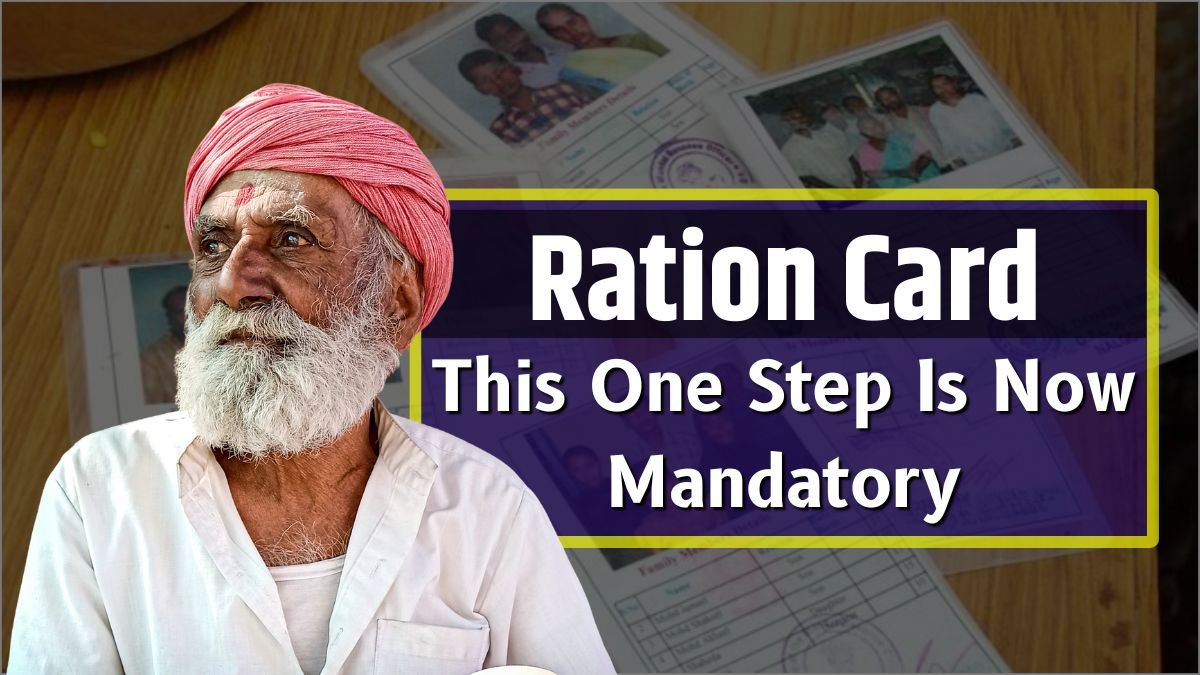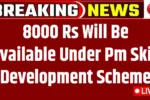If you or your family depend on subsidized ration, there’s something you absolutely need to know.
The Central Government has now made e-KYC (electronic Know Your Customer) verification mandatory every five years for all ration card holders under the Public Distribution System (PDS). This isn’t just a formality—it directly affects your ability to receive subsidized food and grains. Ignoring this could result in your ration card getting deactivated, meaning no access to ration benefits.
Let’s break it down in simple terms.
Why Has e-KYC Been Made Mandatory?
The government’s main goal is to make ration distribution more transparent and fraud-proof. With millions relying on subsidized food, it’s crucial that these benefits reach real and deserving families—not fake or duplicate entries in the system.
The e-KYC process helps:
- Weed out ineligible or duplicate beneficiaries
- Ensure subsidy reaches only the right people
- Stop fraudulent claims that cost taxpayers and hurt the needy
- Align with the One Nation One Ration Card (ONORC) system, which lets people access ration from anywhere in India
What Are the New Rules?
According to the new notification issued by the Ministry of Consumer Affairs, Food & Public Distribution under the Targeted Public Distribution System (Control) Amendment Order, 2025, the following changes are now in effect:
e-KYC Must Be Done Every 5 Years
All ration cardholders must undergo e-KYC verification once every five years. This will be managed by your state government.
Ration Cards May Be Deactivated
If a family hasn’t used their ration card for six months or more, their card may be temporarily deactivated. To restore it, field verification and e-KYC must be done within three months.
Age Limit for New Ration Card
The minimum age to apply for a separate ration card is now 18 years. This helps prevent the misuse of cards under children’s names.
Aadhaar for Kids
For children under five, Aadhaar numbers (if available) must be collected. Once a child turns five, e-KYC must be completed within one year.
Duplicate Cards Will Be Cancelled
If any ration card is found to be a duplicate, either within the same state or across different states, it will be temporarily deactivated. Beneficiaries will have 3 months to prove their eligibility through documents and complete e-KYC.
Waiting List for New Cards
A new system called First In, First Out (FIFO) will be used for issuing new ration cards. A real-time waiting list will be published on state websites so applicants can track their status.
What Is e-KYC?
e-KYC is a digital identity verification process based on your Aadhaar. It’s designed to make sure that the person using the ration card is actually eligible.
Here’s what it verifies:
- Name
- Gender
- Date of Birth
- Address
- Aadhaar Number
- Biometric match (fingerprint or eye scan)
This information is securely fetched from UIDAI (Unique Identification Authority of India) and matched with the PDS database to verify identity.
How to Complete e-KYC (Online & Offline Methods)
You can complete the process either online or in-person.
Online Method:
- Visit your state’s official PDS portal
- Go to the e-KYC or Ration Card Services section
- Enter your Ration Card Number and Aadhaar Number
- Verify using the OTP sent to your Aadhaar-linked mobile number
- Complete biometric verification, if required
Offline Method:
- Visit your nearest Fair Price Shop (FPS) or Common Service Centre (CSC)
- Carry your Ration Card and Aadhaar Card
- Do biometric verification using fingerprint or iris scan
- Collect the acknowledgement slip after submission
Why It Matters
For millions of families across India, the ration card is a lifeline. With rising costs of living, these subsidies can make the difference between hunger and a full plate. But for this system to work, it must be fair, transparent, and secure.
That’s why the e-KYC step matters so much.
The government claims that Aadhaar-based verification has already saved ₹3.3 lakh crore (around $40 billion) across various schemes by reducing fraud. Now, with this change in the PDS, the same savings and fairness are expected in ration distribution.
If you’re a ration card holder—or know someone who is—make sure this information reaches them in time. A missed e-KYC could mean losing access to your essential food supply.





